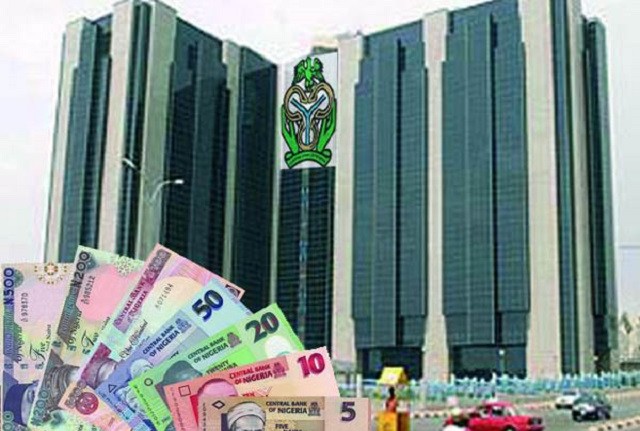 Fresh trouble is brewing for the cash-strapped Federal Government as the Revenue Mobilisation, Allocation and Fiscal Commission (RMFAC) yesterday declared that the presidency was wrong to have arrogated to itself the control of revenue generated by some 31 agencies. RMFAC is charged with revenue mobilisation and distribution among the three tiers of government.
Fresh trouble is brewing for the cash-strapped Federal Government as the Revenue Mobilisation, Allocation and Fiscal Commission (RMFAC) yesterday declared that the presidency was wrong to have arrogated to itself the control of revenue generated by some 31 agencies. RMFAC is charged with revenue mobilisation and distribution among the three tiers of government.
Besides, against the backdrop of rising support for the Central Bank of Nigeria (CBN)’s effort to revamp the economy, stakeholders in the banking sector under the aegis of the Bankers Committee yesterday urged that education and health tourism should be added to the list of 41 items denied foreign exchange (forex) through the official window.
Essentially, RMFAC is claiming that the revenue so generated ought to be remitted into the Federation Account where it would be distributed to the three tiers of government at the monthly Federation Accounts Allocation Committee (FAAC ) meeting.
Accordingly, RMFAC has drawn the attention of the National Assembly to what it described as an aberrant action by the Federal Government, and is asking for the abrogation of the decrees setting up such revenue generating agencies and to be properly legislated upon and set up by acts of the National Assembly.
The implication of the action being undertaken by RMFAC under its Acting Chairman, Shettima Umar Abba Gana, would see the Federal Government losing control of revenue generated by these agencies .
The affected agencies, mostly established via decrees, include: the Federal Airports Authority of Nigeria (FAAN), National Agency for Food Drugs Administration and Control (NAFDAC), Corporate Affairs Commission (CAC), Securities and Exchange Commission (SEC), Nigeria Maritime Administration and Safety Agency (NIMASA), Nigeria Ports Authority (NPA), Federal Road Safety Commission (FRSC), Bureau of Public Enterprises (BPE), National Broadcasting Commission (NBC), Nigeria Immigration Service (NIS), Nigeria Communications Commission (NCC), Nigeria Deposit Insurance Corporation (NDIC) and Nigeria Security, Printing and Minting Corporation (NSPMC).
Others are Nigeria Export Processing Council, Federal Radio Corporation of Nigeria (FRCN), Nigeria Investment Promotion Council (NIPC), Nigeria Civil Aviation Authority (NCAA), Nigeria Postal Service (NPS), Nigeria Railway Corporation (NRC), Nigeria Social Insurance Trust Fund (NSITF), Nigeria Airspace Management Agency (NAMA), Nigeria Re-Insurance, Nigeria Environmental Standards and Regulatory Agency, National Clearing and Forwarding Agency, Nigeria Shippers Council, Nigeria Mining Corporation (NMC), National Sugar Development Agency, National Automobile Council, Nigeria Tourism Development Corporation, National Agency for Engineering Agency and Raw Materials Research and Development Council.
The RMAFC’s argument is that the laws establishing the agencies contravene the provisions of Sections 1(3) and 162(1&10) of 1999 Constitution of the Federal Republic of Nigeria (as amended).
The spokesman of RMAFC, Ibrahim Mohammed, yesterday confirmed to The Guardian the request made by his establishment to the National Assembly, saying it was inconsistent with the nation’s constitution for the Federal Government to be collecting revenue from the agencies concerned.
The Bankers Committee met in Abuja to fashion out means of making the banks play their traditional roles of assisting the real sector in the economy to be the engine of growth.
It is coming following the realisation that demands forex on a monthly basis by the apex bank and the Bankers Committee for just education and medical tourism alone exceeds 15 per cent, whereas, these services can as well be obtained locally.
In this regard, banks in the country have been advised to focus on how to boost the real sector by prioritising the financing of raw materials development and upgrade of local infrastructure, including educational and medical facilities to curtail the high rate of exodus of Nigerians.
Leading the debate at a colloquium organised by TheCable with the theme “The Naira on Trial: To Devalue or Not,” in Lagos, yesterday, Edo State Governor, Adams Oshiomole, said that while it was true that the country’s foreign exchange earnings had plummeted, it was not true that all the demands for foreign currencies were worthy of attention.
“I still think the import prohibition list needs to be increased. At least, medical tourism is greatly impeding on the foreign exchange reserves. Those whose children are schooling abroad for status symbol are also part of it. These must be included, so that we can begin to take responsibility,” he said.
According to him, the value of the naira should no longer be determined by rates in relation to other currencies, but by what it could offer citizens.
“Who wants devaluation? It is the investment bankers who sit in their offices with their laptops to analyse other countries’ economies and relate it to Nigeria and speculate how it will rub off on the naira and expect everyone to take their opinions as they are.
“If oil had remained at $140 per barrel or even above, no one would have bothered about devaluation. When humans do not labour to earn, they behave irrationally and that is why the country is in this condition now”, Oshiomhole said.
The Director of Monetary Policy, CBN, Moses Tule, canvassed a framework capable of attracting Foreign Direct Investment and urged Oshiomhole to lead the campaign for an investment-friendly climate.
He said that the agitators for devaluation and speculators had used the situation of low foreign exchange earnings to arbitrage on the naira, saying that even other West African countries come to Nigeria for foreign exchange through them.
“The total of foreign reserves in West African countries as at June 2015, was $32 billion, out of which Nigeria has $29 billion. Why is it that those countries are not facing the pressure like us?” he queried.







